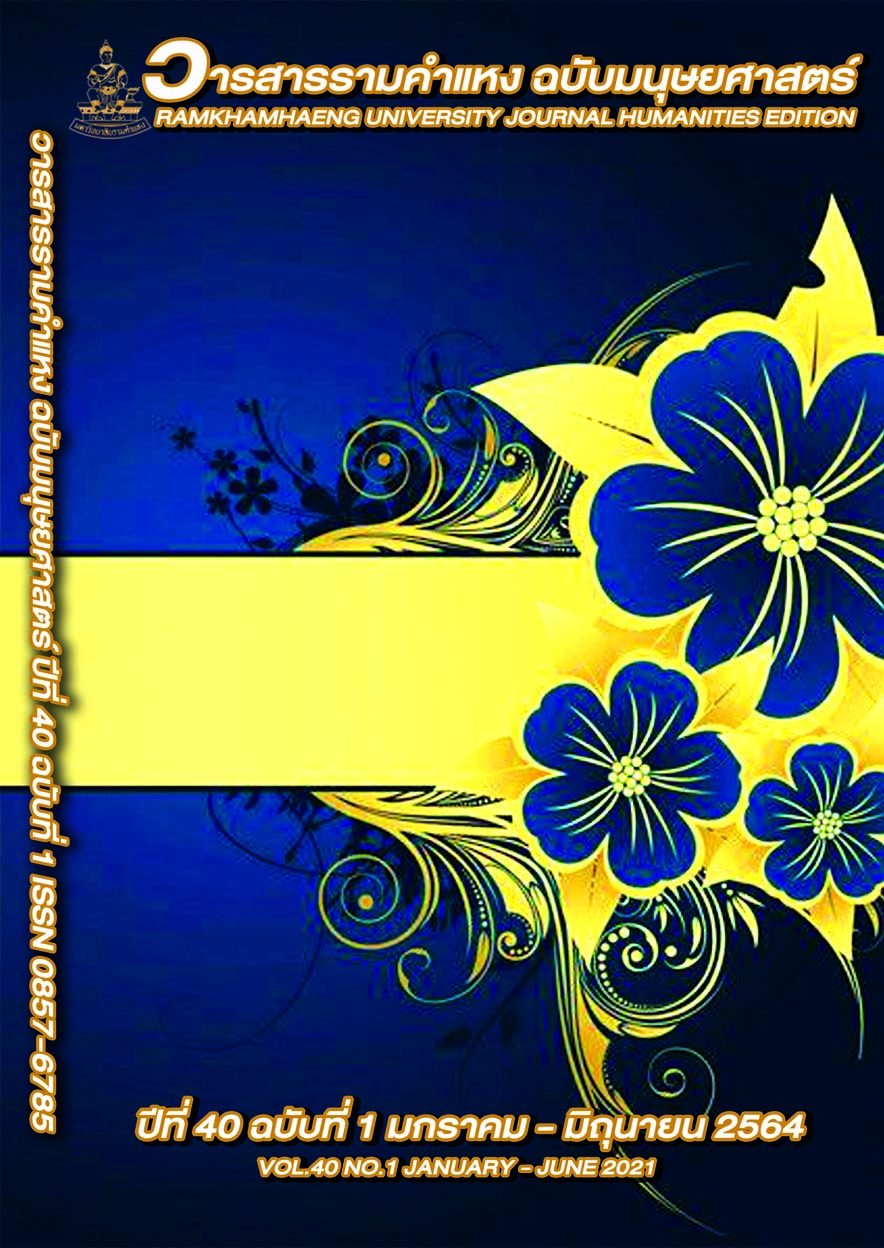Catharsis as a Dramatic Act
Main Article Content
บทคัดย่อ
Because the term “catharsis” in Aristotle’s definition of tragedy in the Poetics is too subjective for a formal definition, and because the interpretations of purging or purifying pity and fear vary widely, the author recommends discovering a type of catharsis that is independent of the feelings of audience members. Rather than purging pity and terror from the spectators, catharsis could be a way of delivering a tragedy’s protagonists from their terror and suffering. The author read 32 tragedies by Aeschylus, Sophocles, and Euripides and found that, in some plays, a god enters (the deus ex machina) and saves the characters; in a few plays, a human hero steps in to stop the villains; but the majority of plays have a fully tragic ending. A definition of catharsis as deliverance is also offered.
Article Details

อนุญาตภายใต้เงื่อนไข Creative Commons Attribution-NonCommercial-NoDerivatives 4.0 International License.
ประกาศลิขสิทธิ์จะปรากฏในเกี่ยวกับวารสาร ควรอธิบายสำหรับผู้อ่านและผู้เขียนว่าเจ้าของลิขสิทธิ์เป็นผู้เขียนวารสารหรือบุคคลที่สาม ควรรวมถึงข้อตกลงการอนุญาตเพิ่มเติม (เช่นใบอนุญาตครีเอทีฟคอมมอนส์) ที่ให้สิทธิ์แก่ผู้อ่าน (ดูตัวอย่าง) และควรให้วิธีการรักษาความปลอดภัยหากจำเป็นสำหรับการใช้เนื้อหาของวารสาร


